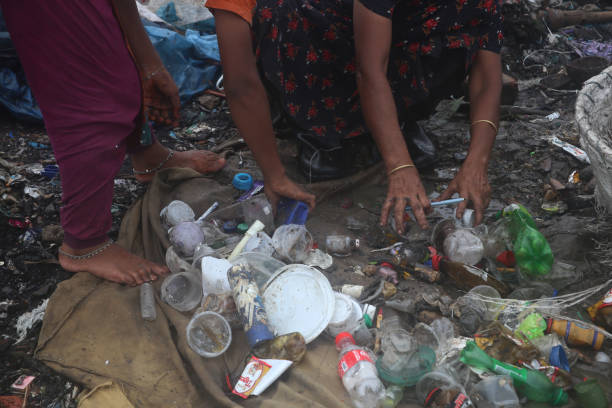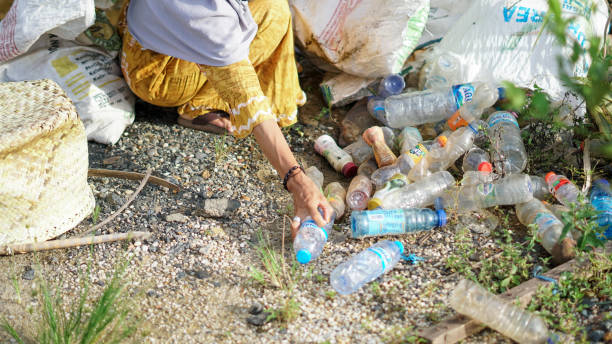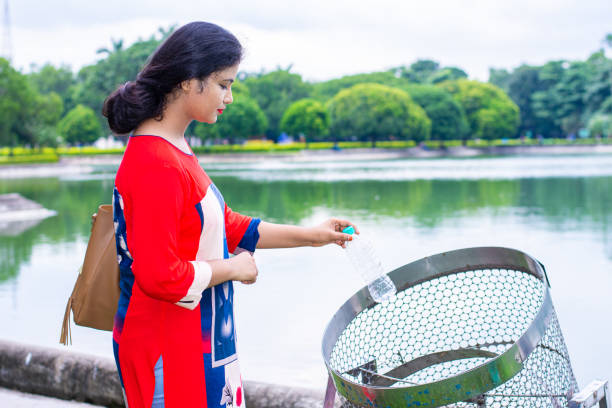Indian NGO Fighting Plastic Waste Pollution
It’s everywhere today — on city streets and in rivers and on beaches, and even to the deepest parts of the ocean. It is one of the world’s most urgent environmental problems.
In addition, as this crisis continues to intensify, numerous environmental organizations have rushed into action. A stellar case in point is an Indian NGO Fighting Plastic Waste Pollution, and a major linchpin in ensuring that America prospers in a cleaner, healthier future. It’s these organizations applying creative approaches, high-impact public awareness efforts and participatory approaches at the community level that are confronting plastic waste pollution most effectively.
In this article, we examine why plastic waste is such a huge challenge and how Indian NGOs combat this issue, challenges they face, what works and some success stories, as well as what you can do to help make India plastic free.
Why Plastic Pollution Is a Big Difficult
Plastic is non-biodegradable and can take many hundreds of years to decompose. As a result:
- In our landfills, we have too much non-biodegradable plastic garbage.
- Poisonous gases, including dioxins and furans, are emitted into the air by open burning.
- Rivers, lakes and oceans become dumping places for plastic as water pollution soars.
- It takes a toll on marine life as fish, turtles and seabirds ingest plastic.
Micro plastics minuscule particles of plastic are now in our drinking water, salt and even the air we breathe. They find their way into the food chain and eventually to our bodies, posing health risks.
While the Indian government has outlawed some single-use plastics, policing is still patchy. However, that is where Indian NGOs Fighting Plastic Waste Pollution come to play who are making effort to bridge the gap by carrying awareness programs, clean-up drives and recycling efforts.
How Indian NGOs Battle Plastic Pollution
An Indian NGO Fighting Plastic Waste Pollution utilizes a combination of methods to address this problem. Their approach includes:
- Cleaning drives in cities, towns, and near the coast.
- Collaborating with corporates around EPR (extended producer responsibility).
- Here are some of these efforts in more detail.
Community Clean-Up Drives
Clean-up is amongst the most obvious activities of NGOs. Volunteers converge on public spaces — markets, beaches, parks, riverbanks — to pick up plastic waste. The gathered waste is later sorted in recyclable and non-recyclable groups.
Recyclable plastic is brought to recycling centers, where it is reprocessed into new products.
Unrecyclable plastics are taken to hazardous waste for proper disposal to protect the environment.
Such drives not just clean the places but also instill a sense of hygiene among the local populace. A few of the NGOs, in fact, team up with schools and colleges to involve the st udent community in such awareness drives.
Recycling and Upcycling Projects
Recycling campaigns and upcycling, rather than waste collection, have become common campaigns of several NGOs. They process the plastic waste, and use it to make:
- Environment friendly tiles and paver blocks for roads.
- Park and public benches.
- School bags, stationery and accessories, decorative items.
Some creative initiatives even convert plastic into fuel with pyrolysis technology. In offering plastic a “second life,” these NGOs are diverting waste from landfills and contributing to a circular economy.

School and College Awareness Programs
Young people are an important force in leading the future. This is why NGOs organize school awareness programs. They conduct workshops, street plays and interactive sessions to sensitize students towards:
- The toxic impacts of plastic on health and the environment.
- Replacements like cloth bags, steel bottles and paper straws.
- The need to reduce, reuse and recycle plastic waste.
Shifting behaviour when young leads to lasting changes in adulthood. A good portion of participates then become classroom volunteers and eco-champions in their communities.
Challenges Faced by NGOs
Even with the commitment of these noble Indian Not-for-Profit Organizations to Combat Plastic Waste Pollution, they face several challenges:
Insufficient funds: Many of the small ngo’s that are working in the field depend much on donations/grants, which are not adequate.
Despite these obstacles, NGOs keep fighting because they know that we all havebut one future, as environmental degradation affects us all.
Technology in plastic waste control
Technology has emerged as waste’s knight in shiny armor. NGOs are using such modern tools as:
- Apps to mobilize users to clean up and to monitor attendance.
- Plastic shredders for inhouse recycling and for recycling post-consumer waste.
- AI-driven sorting machines for quickly, efficiently separating different types of plastic.
GPS tracking of garbage trucks for better logistics.
These strides are valuable as they save time, cut the cost for sustenance, and allow civil society organizations to concentrate on more service areas.
Partnership with Corporates and Government
The problem of plastic pollution requires more than NGOs can accomplish. Many organizations partner with:
- Corporates: As part of CSR initiatives, companies provide funds for recycling plants, awareness campaign as well as for waste collection vehicles. Some also implement Extended Producer Responsibility (EPR) regulations for the management of their packaging waste.
- Government: At the national, state and local level, government-funded programmes like the Swachh Bharat Abhiyan, and state-based programmes extend technical, financial, infrastructure development support to NGOs.
“Those things grow the impact, and involve more people in this fight against plastic pollution.”
Success Stories: From Villages to Cities, Entering a Plastic-Free World
In India, there have been good experiments in several villages and towns which has proved that a plastic free future is possible.
- Kerala Village Model: A tiny village in Kerala, decided to strictly ban single-use plastics. Residents carry their own cloth bags, steel utensils and plates made from leaves. Local women’s groups produce reusable bags, providing economic opportunities in the process.
- Sikkim’s Plastic Ban: Sikkim was one of the earliest Indian states to ban plastic bags. This legal requirement was also effected through the great work of non-governmental organizations providing distribution alternatives and raising awareness.
- Beach Clean-Ups in Mumbai: Thanks to the efforts of local NGOs and volunteers, some of the filthiest beaches in Mumbai have now become clean, tourist-friendly places.
These success stories demonstrate that with community cooperation and NGO assistance, the dirtiest of places can become clean and green.
Health and Environmental Benefits
Reducing plastic waste delivers a trifecta of benefits:
- Cleaner air and water: Fewer toxins emitted from burning plastic.
- Healthier humans and animals: Less plastic being ingested by animals; reduced exposure of humans to micro plastics.
- Better tourism: Clean beaches, lakes and rivers draw more tourists, supporting local economies.
- Improved soil quality: Less plastic litter leads to healthier farmland and ecosystems.
Localities where their communities are working with NGOs have witnessed significant public health and environmental improvements over the years.
How You Can Help N.G.O.s for Plastic Waste
A reader needn’t be an environmental whiz to contribute. Here are simple ways to help:
- Donate: Money donated will allow NGOs to mobilise citizens for clean-up drives and for building recycling infrastructure.
- Volunteer: Offer to participate in weekend clean-up drives or awareness campaigns in your city.
- Spread the word: Share N.G.O. posts and campaigns on social media.
- Change your lifestyle: Say no to plastic bags, carry your own water bottle and use eco-friendly options.
Every bit of progress counts and when multiplied by millions of people.
Future Aspirations for Plastic-Free India
A plastic-free India: Dream that needs long-term effort NGOs envision:
- Recycling plants in every district, which avoid.
- Real punishment for plastic bans.
- Studies on plastic packaging eco-friendly substitutes.
- The very segregation of waste at source across the country.
However, with increasing public support, rapid technology take-up and clear policy backing, such dreams may not be beyond our reach.

Conclusion: Indian NGO Fighting Plastic Waste Pollution
Plastic waste pollution is still amid the worst problem of our time. However, Indian NGOs Fighting Plastic Waste Pollution demonstrate that change is likely. Thanks to clean-up efforts, recycling initiatives, teaching programs and partnerships, they are creation serious inroads against plastic pollution.
We all can help them—a little or a lot, in time or money, near donations or helper work or a change in lifestyle—bring about a cleaner, safer and better India. The road ahead may be a long one, but we can all work together to attain a plastic-free future.
FAQs: Indian NGO Fighting Plastic Waste Pollution
How does an Indian NGO Fighting Plastic Waste Pollution use contributions?
The donations cover clean-up drives, education initiatives and waste collection centers.
Are students able to volunteer with an Indian NGO Fighting Plastic Waste Smog?
They can participate in weekend clean-up drives, attend awareness workshops, even initiate eco-clubs in schools and colleges.
What tax benefits if any, for donations to these NGOs?
Most of the registered NGOs have 80G (Income Tax Act) tax exemption for donation.
What are some plastic-free alternatives suggested by NGOs?
Many people as an alternative use cloth bags, jute packaging, stainless steel bottles, bamboo straws and biodegradable plates.
What are the various ways in which corporates can join hands with NGOs?
Corporates can partner with NGOs, and contribute to them from their CSR funds, launch joint awareness initiatives, garbage management projects under EPR programs amongst others.
